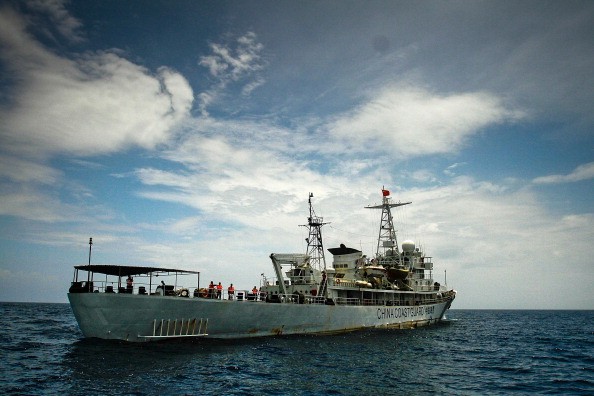China reaffirmed its claim to sovereignty over several islands in the South China on Wednesday in response to outgoing Taiwanese President Ma Ying-jeou’s recent visit to the disputed Taiping Island, although stressing that both the mainland and Taiwan have a shared responsibility to safeguard the region.
"Safeguarding national sovereignty and territorial integrity and the overall interests of the Chinese nation are the common responsibility and obligation of compatriots on both sides," Ma Xiaoguang, spokesperson of the State Council Taiwan Affairs Office, said in a bi-weekly news briefing.
President Ma flew to Taiping on a C-130 cargo plane on Thursday morning to offer Chinese New Year wishes to the island's residents and to reiterate his call for peaceful coexistence and joint development in the region.
"Taiping Island is able to sustain human habitation and an economic life of its own. Taiping Island is categorically not a rock, but an island," the president said, adding that recent infrastructure developments in the island reinforces Taiwan's claim of sovereignty and its rights over the surrounding waters.
The visit comes following the opposition Democratic Progressive Party's (DPP) landslide victory in Taiwan's general elections in Jan. 16.
Ma, who is expected to step down in May, said it had asked DPP chairwoman and President-elect Tsai Ing-wen to send a representative to the trip, but the DPP declined, the Beijing-based Global Times reported.
"As the DPP is poised to become the ruling party, the mainland may face greater challenges in terms of the South China Sea," Wang Jianmin, a cross-Straits scholar at the Chinese Academy of Social Sciences, told the Global Times.
Ma Xiaoguang warned that relations between mainland China and Taiwan will face a serious setback if the 1992 Consensus, in which both governments recognize only "one China," is not followed.
It is not realistic for Taiwan to sever economic cooperation with the mainland to expand its so-called "space of international cooperation," the mainland's Taiwan affairs spokesperson said, noting that the international community acknowledges the one-China policy.
The United States also issued a rare rebuke to Ma's trip, saying it could exacerbate tensions, and renewed a call for dialogue between parties to the dispute.
"President Ma Ying-jeou has every right to make his position clear on the South China Sea. We just disagree with this particular action. We view it as, frankly, raising tensions rather than what we want to see, which is de-escalation," U.S. State Department spokesman Mark Toner said on Wednesday.
Located roughly 2,000 kilometers (1,200 miles) south of Taiwan and 46 hectares (110 acres) in size, Taiping is one the largest islands in the Spratly island group, an area where Taiwan shares claims with China, Vietnam, Malaysia and the Philippines.



























